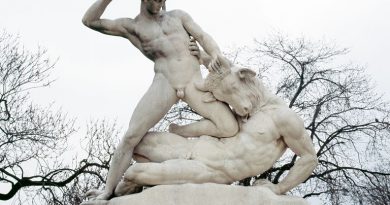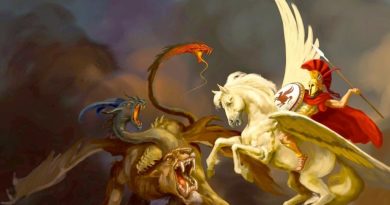The Iliad- an epic poem
The Iliad (Gr: Iliαs) is an epic poem by the ancient Greek poet Homer, which recounts some of the significant events of the final weeks of the Trojan War and the Greek siege of the city of Troy (which was also known as Ilion, Ilios or Ilium in ancient times). Written in the mid-8th Century BCE, The Iliad is usually considered to be the earliest work in the whole Western literary tradition, and one of the best known and loved stories of all time. Through its portayal of the epic subject matter of the Trojan War, the stirring scenes of bloody battle, the wrath of Achilles and the constant interventions of the gods, it explores themes of glory, wrath, homecoming and fate, and has provided subjects and stories for many other later Greek, Roman and Renaissance writings.
Synopsis
The story covered by The Iliad begins nearly ten years into the seige of Troy by the Greek forces, led by Agamemnon, King of Mycenae. The Greeks are quarrelling about whether or not to return Chryseis, a Trojan captive of King Agamemnon, to her father, Chryses, a priest of Apollo. When Agamemnon refuses and threatens to ransom the girl to her father, the offended Apollo plagues them with a pestilence.
The Greeks, at the behest of the warrior-hero Achilles, force Agamemnon to return Chryseis in order to appease Apollo and end the pestilence. But, when Agamemnon eventually reluctantly agrees to give her back, he takes in her stead Briseis, Achilless own war-prize concubine. Feeling dishonoured, Achilles wrathfully withdraws both himself and his Myrmidon warriors from the Trojan War.
Testing the resolve of the Greeks, Agamemnon feigns a homeward order, but Odysseus encourages the Greeks to pursue the fight. During a brief truce in the hostilities, Paris and Menelaus meet in single combat over Helen, while she and old King Priam of Troy watch from the city walls and, despite the goddess Aphrodites intervention on behalf of the over-matched Paris, Menelaus is the victor. The goddess Athena, however, who favours the Greeks, soon provokes a Trojan truce-breaking and battle begins anew.
The Greek hero Diomedes, strengthened by Athena, drives the Trojans before him but, in his arrogance and blood-lust, strikes and injures Aphrodite. Despite the misgivings of his wife, Andromache, the Trojan hero, Hector, son of King Priam, challenges the Greek warrior-hero Ajax to single combat, and is almost overcome in battle. Throughout all, in the background, the various gods and goddesses (particularly Hera, Athena, Apollo and Poseidon) continue to argue among themselves and to manipulate and intervene in the struggle, despite Zeus specific orders to the contrary.
Achilles steadfastly refuses to give in to pleas for help from Agamemnon, Odysseus, Ajax, Phoenix and Nestor, spurning the offered honours and riches and even Agamemnons belated offer to return Briseis to him. Diomedes and Odysseus sneak into the Trojan camp and wreak havoc. But, with Achilles and his warriors out of battle, the tide appears to begin to turn in favour of the Trojans. Agamemnon is wounded in the battle and, despite the heroics of Ajax, Hector successfully breaches the fortified Greek camp, wounding Odysseus and Diomedes in the process, and threatens to set the Greek ships on fire.
Torn between his allegiances, Achilles orders his friend and lover, Patroclus, to dress in Achilles own armour and to lead the Myrmidons in repelling the Trojans. Intoxicated by his success, Patroclus forgets Achilles warning, and pursues the fleeing Trojans to the walls of Troy and would have taken the city were it not for the actions of Apollo. In the heat of the battle, though, Hector finds the disguised Patroclus and, thinking him to be Achilles, fights and (again with Apollos help) kills him. Menelaus and the Greeks manage to recover Patrocluss corpse before Hector can inflict more damage.
Distraught at the death of his companion, Achilles then reconciles with Agamemnon and rejoins the fray, despite knowing his deadly fate, and drives all the Trojans before him in his fury. As the ten year war reaches its climax, even the gods join in the battle and the earth shakes with the clamour of the combat.
Clad in new armour fashioned specially for him by Hephaestus, Achilles takes revenge for his friend Patroclus by slaying Hector in single combat, but then defiles and desecrates his corpse for several days. Now, at last, Patroclus funeral can be celebrated in what Achilles sees as a fitting manner. Hectors father, King Priam, emboldened by his grief and aided by Hermes, recovers Hectors corpse from Achilles, and The Iliad ends with Hectors funeral during a twelve day truce granted by Achilles.



